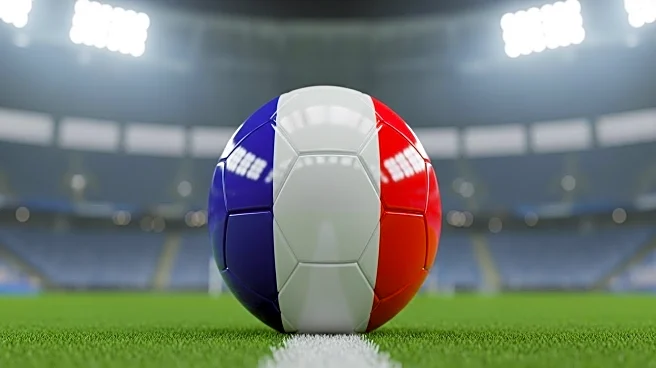What's Happening?
Paris Saint-Germain (PSG) has expressed strong dissatisfaction with the French Football Federation following injuries sustained by its players, Ousmane Dembélé and Désiré Doué, during national team duties. Both players suffered muscle injuries in a match against Ukraine, with Dembélé ruled out for six weeks due to a hamstring injury and Doué for four weeks with a calf strain. PSG has accused the national team of ignoring medical advice provided by the club regarding the players' workload and risk of injury. The club has demanded the establishment of a new medical-sports coordination protocol to prioritize player health and ensure better collaboration between club and national team medical staff.
Why It's Important?
The injuries to key players like Dembélé and Doué have significant implications for PSG, affecting their participation in crucial upcoming matches, including a Champions League clash against Barcelona. This situation highlights ongoing tensions between club and national teams over player management and health. The call for a new protocol underscores the need for improved communication and cooperation to prevent such injuries, which can have substantial sporting and financial consequences for clubs. The broader impact on professional football includes potential changes in how player health is managed during international duties, influencing policies across leagues and federations.
What's Next?
PSG's demand for a new protocol may prompt discussions between clubs and national teams to establish better medical coordination. The French Football Federation's response to PSG's criticism could lead to changes in how player health is managed during international matches. Other clubs may join PSG in advocating for improved protocols, potentially leading to widespread reforms in player management during national team duties. The situation may also influence future decisions by clubs regarding player participation in international matches, prioritizing health and minimizing injury risks.
Beyond the Headlines
The incident raises ethical questions about the responsibility of national teams to safeguard player health and the potential conflicts of interest between club and national team priorities. It also highlights the cultural importance of international football and the pressures on players to perform at high levels for both club and country. Long-term, this could lead to shifts in how player health is prioritized in professional football, with increased emphasis on collaborative approaches to medical care.









